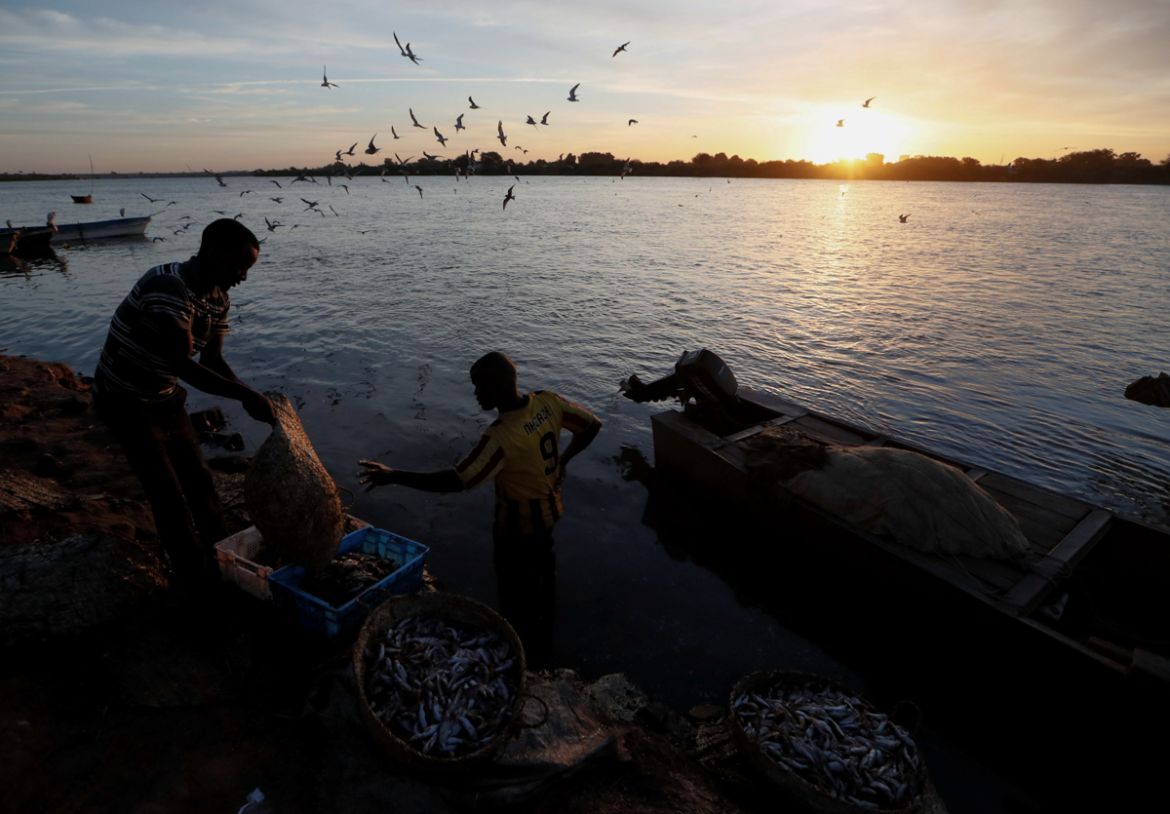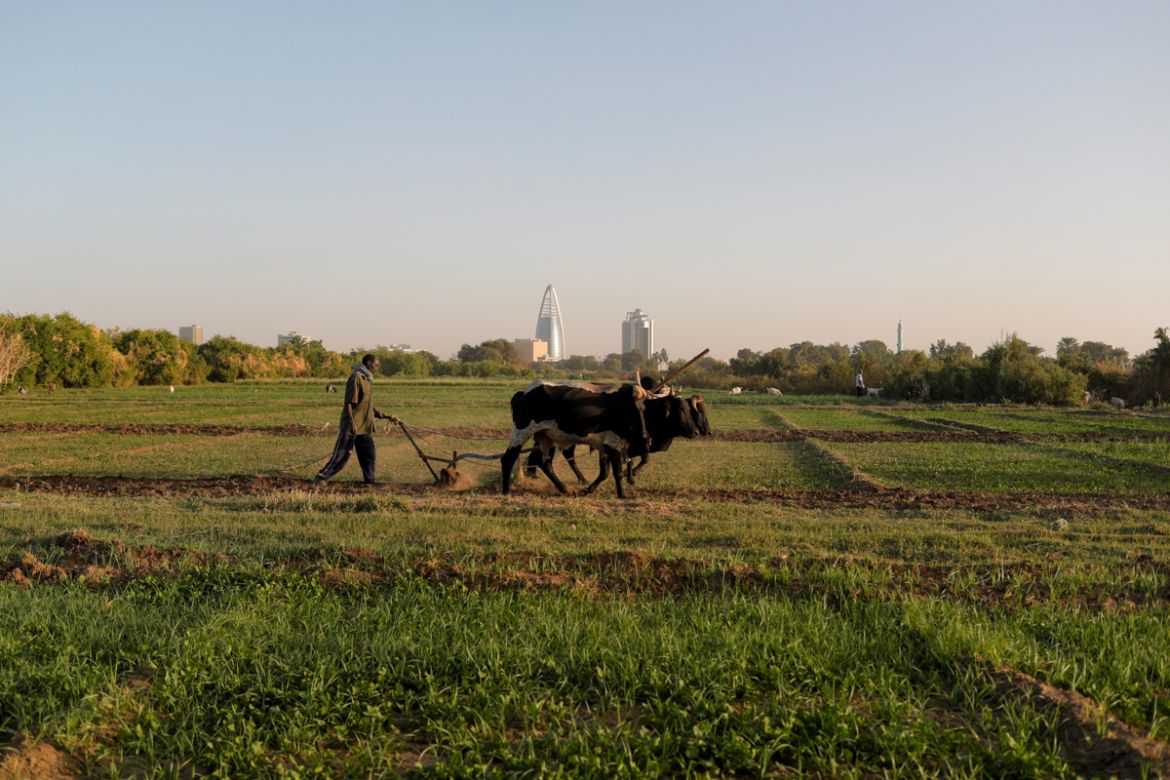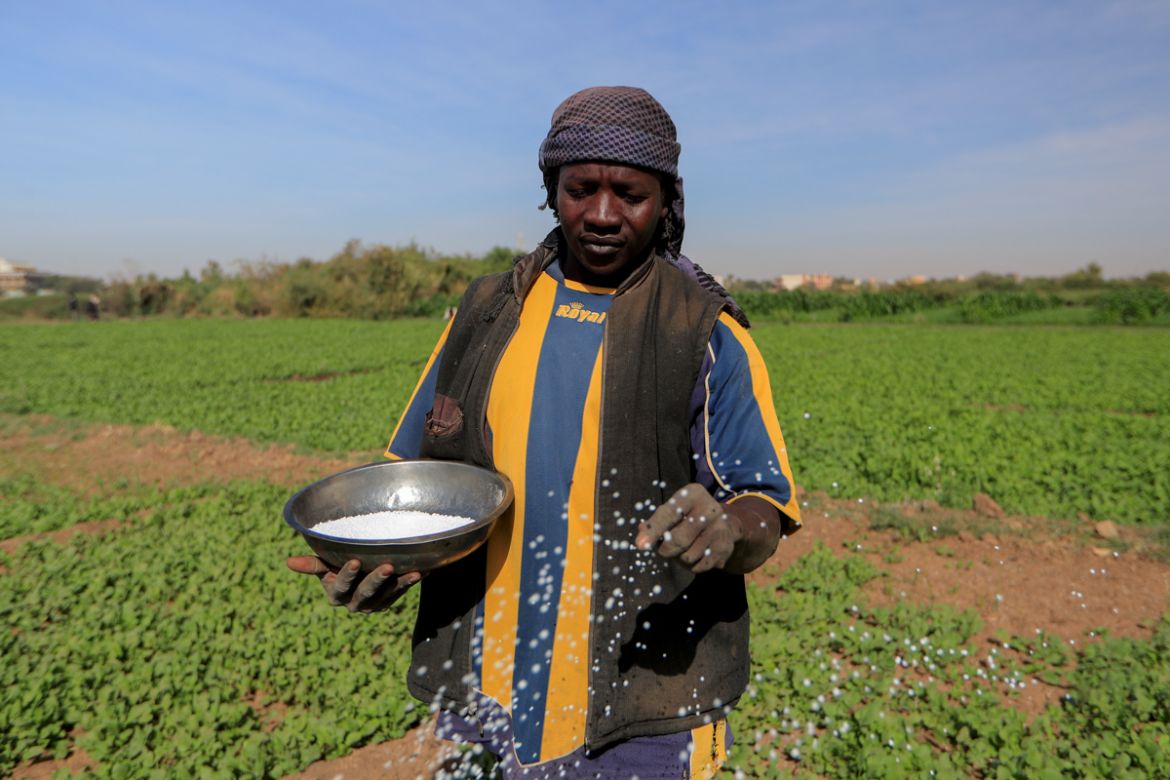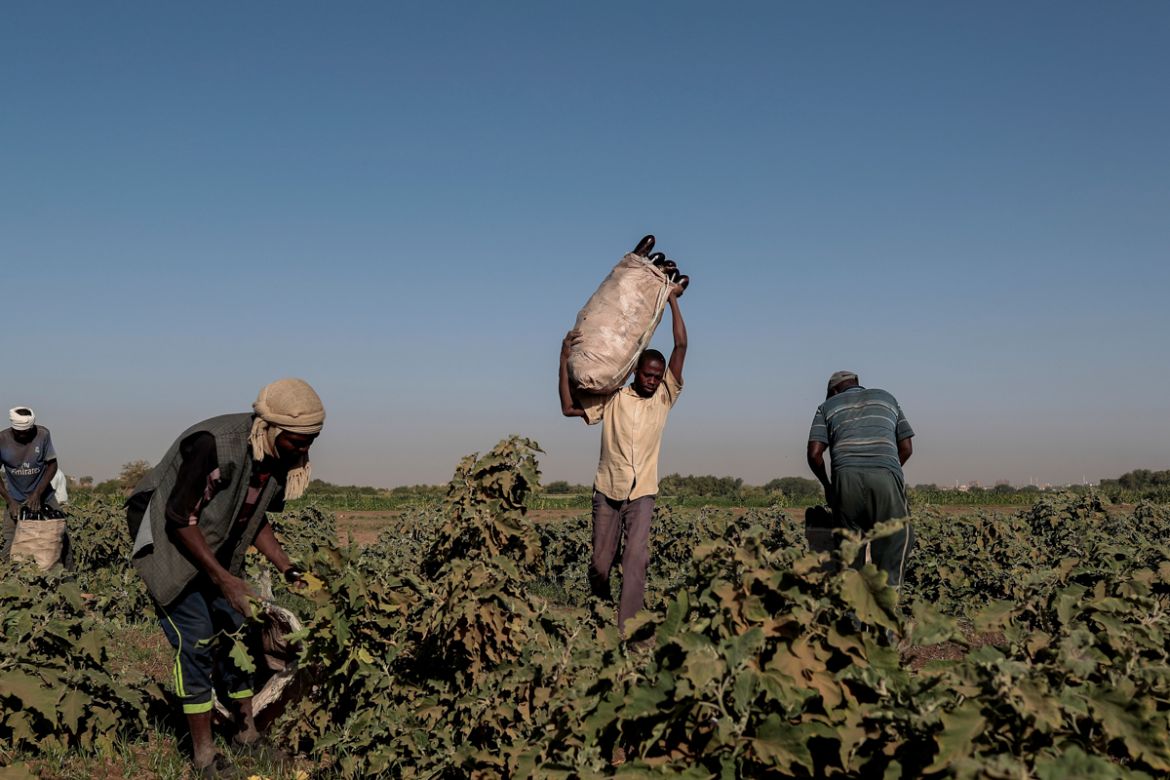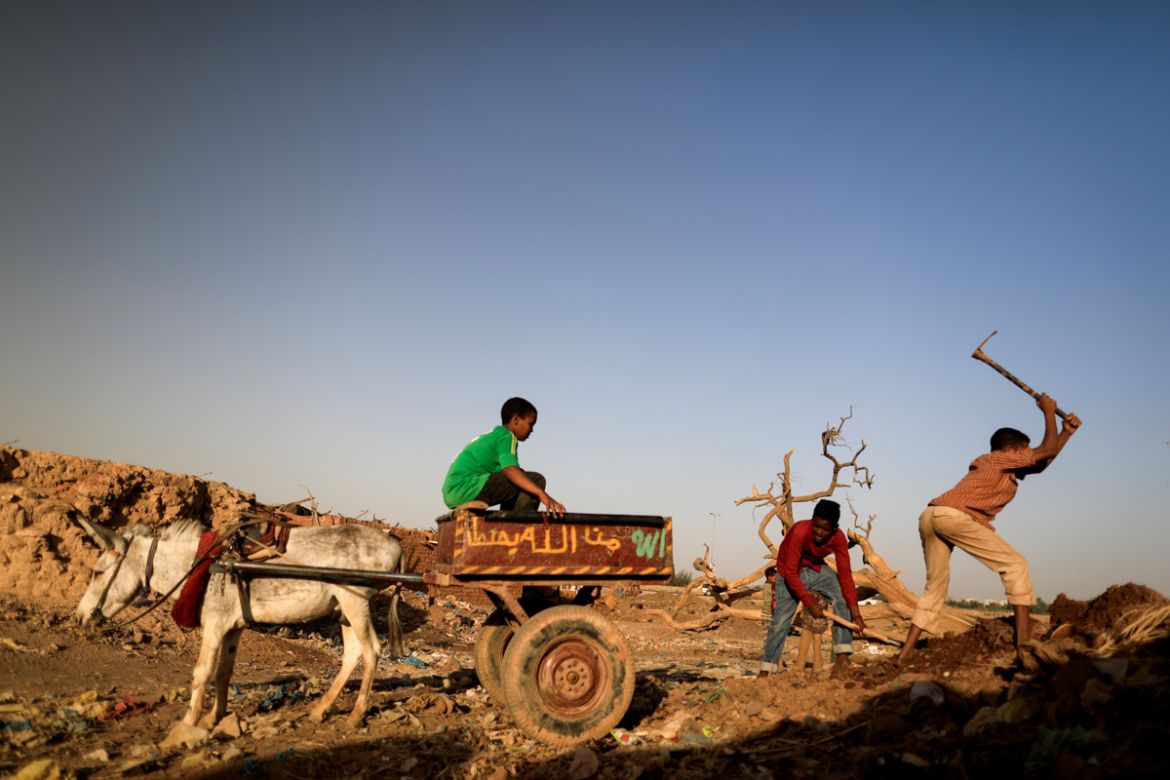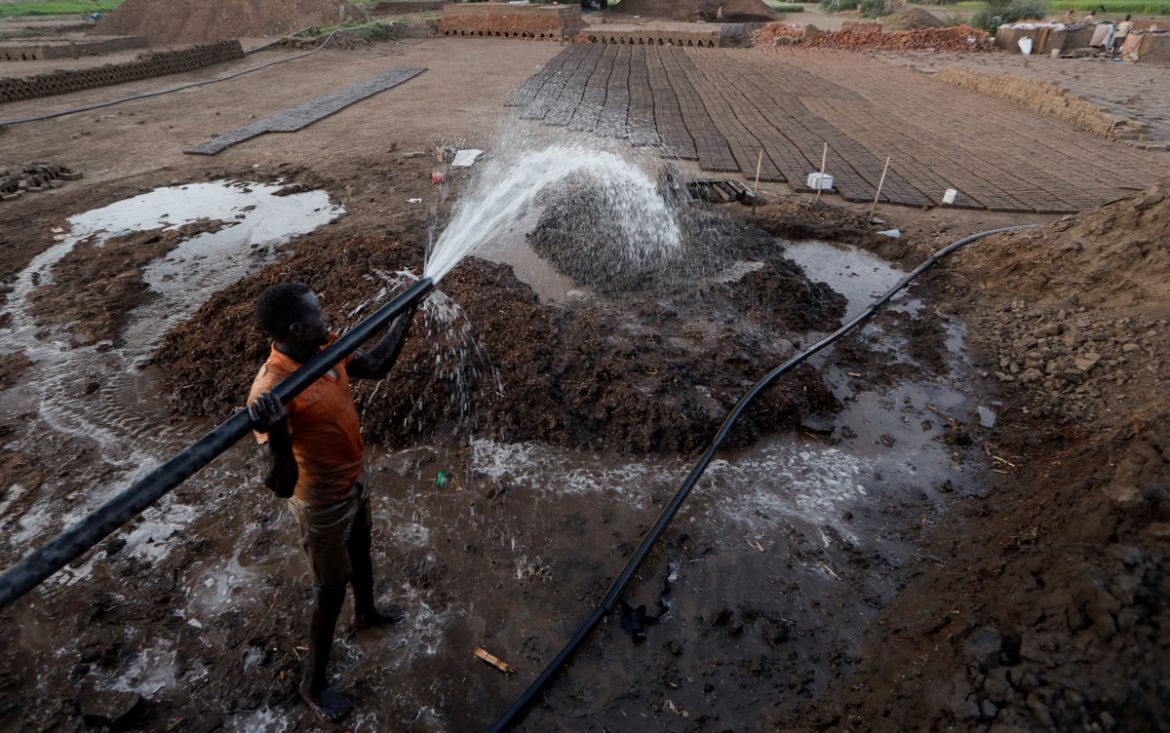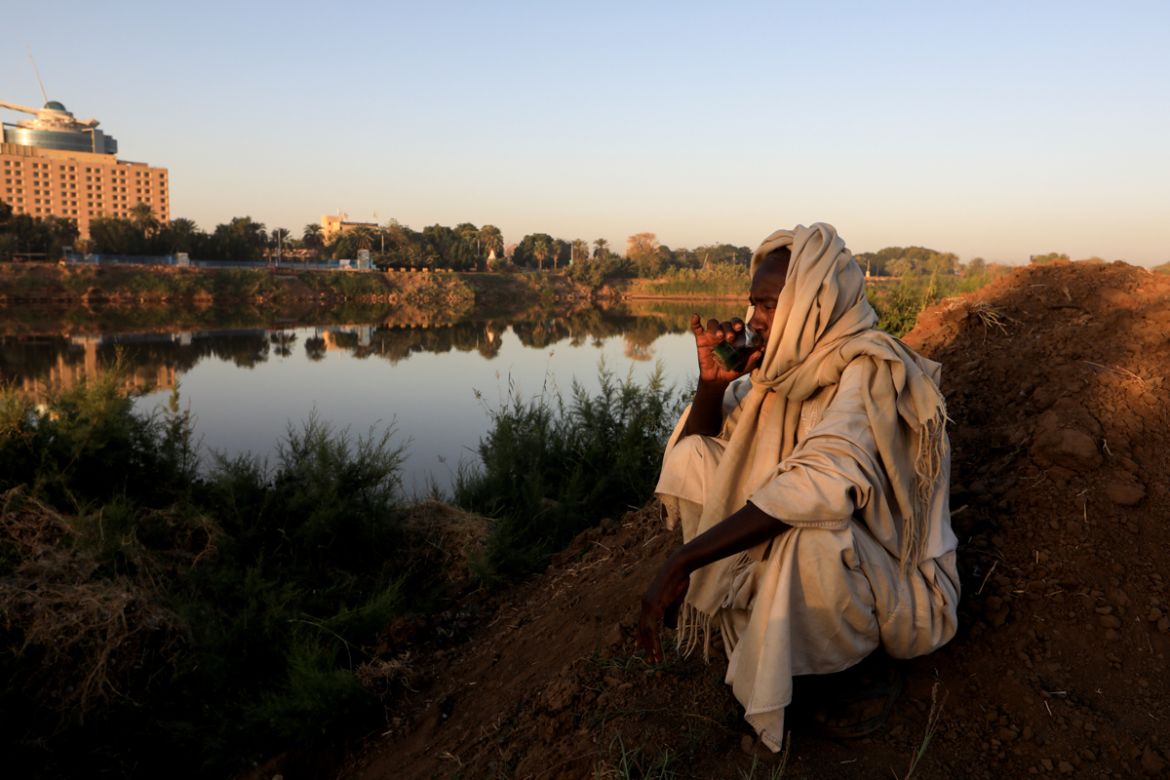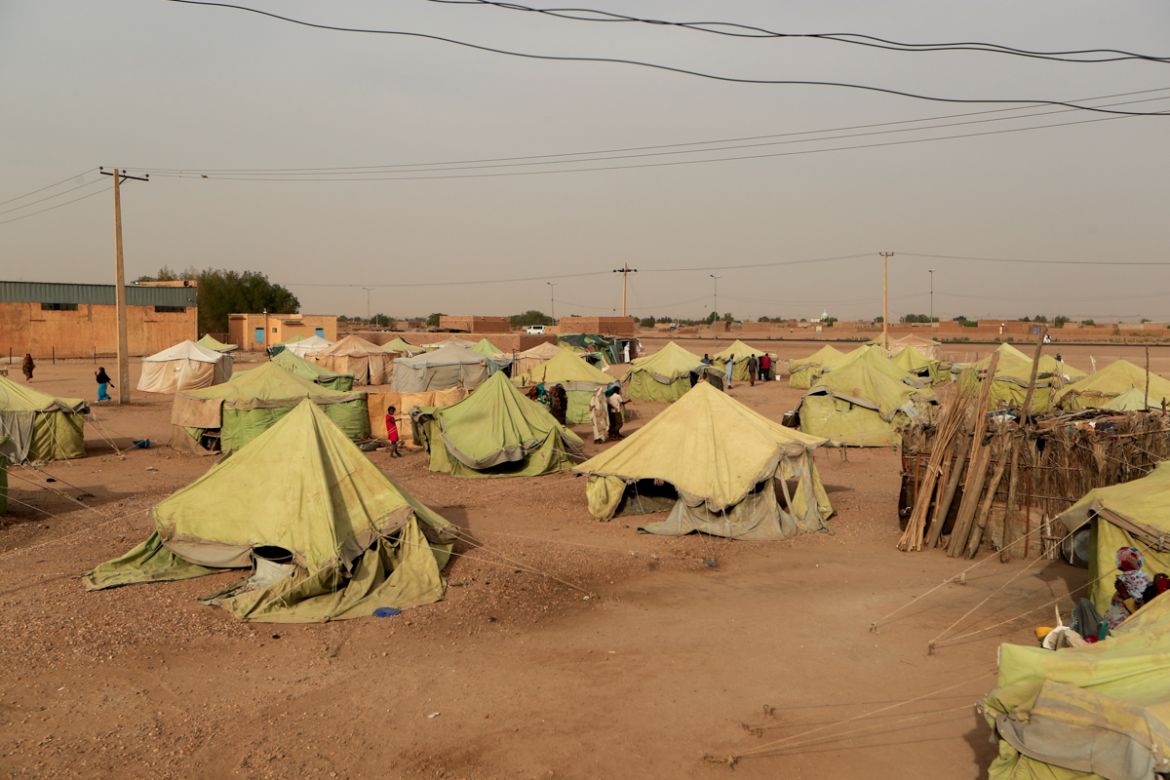In Pictures
Sudan: At Nile’s convergence, fears and hopes over giant dam
Workers fear Ethiopian project close to border could endanger livelihood, though those displaced by floods see benefits.
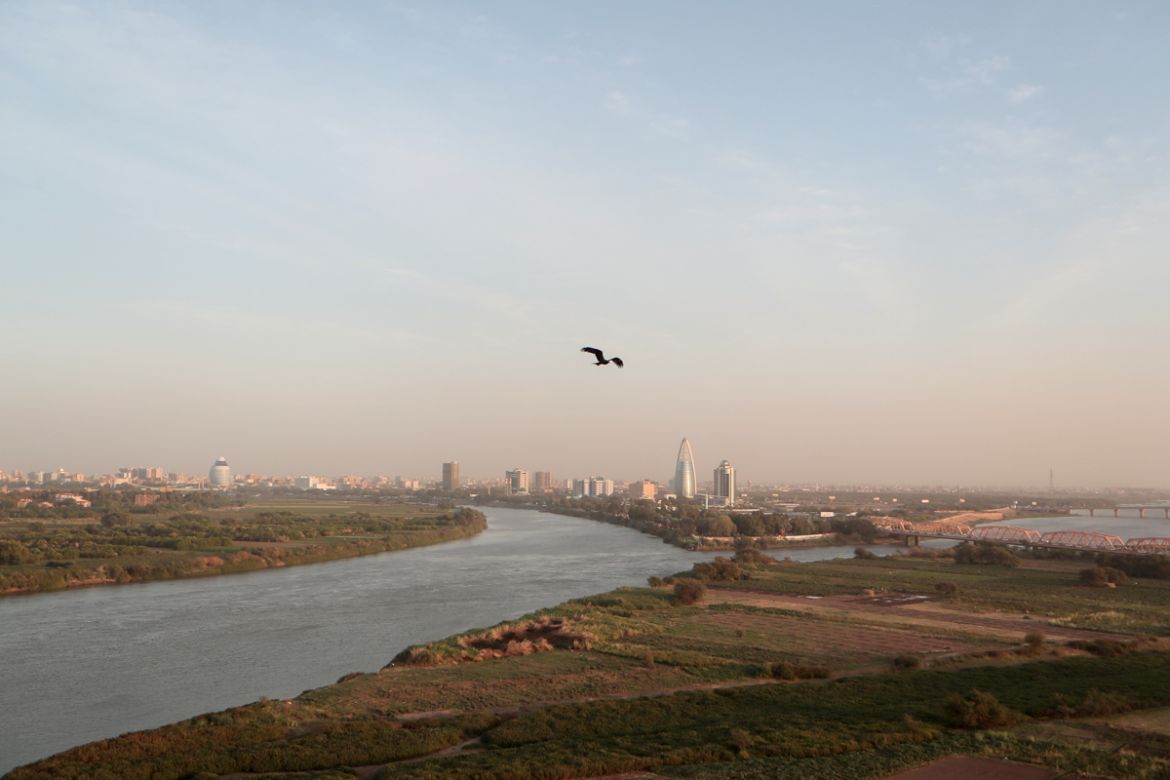
At an open-air, riverbank factory where the Blue Nile and White Nile meet in Sudan, Mohamed Ahmed al-Ameen and his colleagues mould thousands of bricks every day from mud deposited by summer floods.
“I consider the Nile something I have not parted with since I was born,” al-Ameen said, as workers around him shaped bricks with blistered hands and laid them out to dry in the sun. “I eat from it, I farm with it. And I extract these bricks from it.”
But the labourers on Tuti Island in Sudan’s capital, Khartoum, fear a giant dam Ethiopia is building close to the border between the two countries could endanger their livelihood.
They worry the Grand Ethiopian Renaissance Dam upstream could weaken the Blue Nile’s force, putting at risk an industry that locals say provided bricks for some of Khartoum’s first modern public buildings about a century ago.
Pottery makers, farmers and fishermen around the Nile’s convergence share similar concerns, though other residents displaced by flooding last summer see a benefit in a dam that will regulate the powerful river’s waters.
The dam “will stabilise the Nile and we will get less flooding”, said Mutasim al-Jeiry, a 50-year-old potter in a village outside Khartoum’s twin city of Omdurman, where workers craft jars with clay from the river.
“But on the other hand, we will get less clay and less water. Farmers, brick and pottery makers will be seriously affected,” he predicted.
The residents’ views are a snapshot of the hopes and fears thrown up along the length of the Nile by the vast hydropower project, which has triggered a high-wire diplomatic standoff between Ethiopia and Egypt downstream.
Ethiopia, which says it is finally asserting its right to harness the Blue Nile’s waters to power its economy, promises to start filling the reservoir later this month.
Egypt, which sees a risk to its scarce water supplies, is frantically trying to secure a deal that would guarantee minimum flows from the Blue Nile, the source of about 86 percent of the waters of the Nile, which flows into the Mediterranean.
Sudan’s government says the dam could threaten the safety of some 20 million Sudanese living downstream and damage the country’s flood-plain agricultural system if not built and operated correctly.
But it also sees potential benefits in controlling floods during the rainy season and improving the performance of its own dams.
That ambivalence is echoed in the village of Wad Ramli, 60km (37 miles) downstream from Khartoum, where flooding was especially bad last summer. Some residents whose houses were damaged or destroyed were displaced to canvas tents pitched nearby.
“It is true the Renaissance Dam will lower the Nile’s water levels and prevent flooding,” said Manal Abdelnaay, a 23-year-old living in one of the tents. “However, it will affect farming, and the Wad Ramli area is one that lives off farming.”
On Tuti Island, farmers and landowners are anxious that if the dam saps the river’s strength, there will be less water to irrigate and replenish the soil.
“I came to Tuti in 1988 because the land here is the best for agriculture and close enough to supply markets, and it makes good incomes,” said Mussa Adam Bakr, who farms a plot where vegetable fields back onto citrus and mango groves, next to the brick factory.
“Through the year the Tuti earth produces all sorts of vegetables like potatoes, onions, aubergines,” said Bakr.
Sudan was long overshadowed in the dispute over the dam by its two larger neighbours, but has recently stepped up to broker new negotiations between the three countries.
Its citizens will be watching carefully for any changes in the waters they are so dependent upon.
“A fish out of water will die, it cannot survive,” said Ashraf Hassan, a 45-year-old fish trader in Omdurman. “Us too, we live as part of the water, or around it.”
